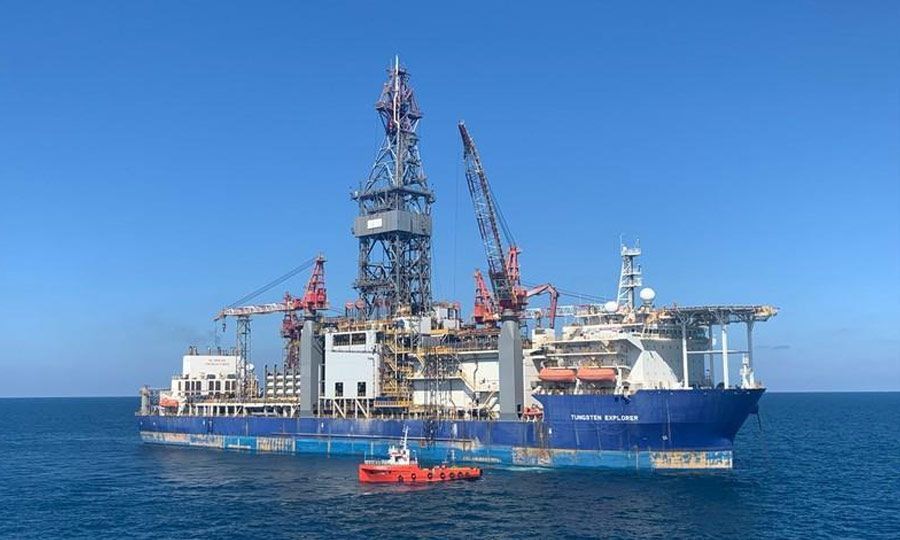Gas find in Cronos-1 provides another chance to solve the Cyprus problem
You are probably aware that the Italian multinational oil and gas company Eni has recently made a significant gas discovery in the Cronos-1 offshore well in block 6, about 160 kilometres southwest of Cyprus.
My understanding is that there are good prospects of discovering further deposits of gas in adjacent areas. This is certainly good news, given the upward trend of the price of oil and gas and the EU’s commitment to drastically reduce its dependence on Russian gas.
However, it is too early to rejoice – as Cypriots have repeatedly done in the past – and it would be a gross mistake to do so. There are two equally important hurdles, which must be overcome fairly quickly. A failure to do so is likely to result in an inability to extract and commercially exploit the gas. As things stand at the moment, these two hurdles are interwoven.
The first problem is the fact that Cyprus has unilaterally delineated the offshore area over which it has an exclusive right to exploit natural resources, its Exclusive Economic Zone (EEZ). Neighbouring Turkey disputes the legality of this action. Turkey claims that the area delineated by Cyprus does not correspond to what Cyprus is entitled to claim under international law. As a consequence, Turkey has declared its intention to intervene and stop Cyprus from commercially exploiting the gas deposits already discovered (and those which may be discovered in the future) that are located in the disputed areas.
Block 6, which contains the Cronos-1, is one of the areas disputed by Turkey. It is almost certain that Turkey will not silently withdraw its claims, and it is highly unlikely that the commercial investments needed for commercially exploiting the gas discovered will be made, while a military flare-up is seen as a possibility. If this problem is not resolved, this is what most probably will happen, even in the case where a big power (such as the United States) makes an irrevocable commitment to militarily intervene in support of Cyprus. Needless to say, securing such a commitment is inconceivable for as long as Turkey remains a member of Nato. Equally inconceivable is to see Greece (or any other European Union country, for that matter) going to war with Turkey for the purposes of protecting Cyprus’ claimed rights over gas deposits in the Eastern Mediterranean.
The second problem is the insistence of Turkey, the Turkish Cypriots and effectively all the foreign countries involved in this dispute that the benefits derived from the commercial exploitation of the Cypriot gas deposits should be “shared fairly” between the Greek Cypriots and the Turkish Cypriots. This position has been formally reaffirmed by the United States in the very recent past in no uncertain terms. The US State Department spokesman said: “We believe that Cyprus’ oil and gas resources, like all its resources, should be shared fairly between the two communities”. This comment came just days after Eni announced its discovery in Block 6.
The Cyprus government has likewise repeatedly reaffirmed its readiness to ensure that Cyprus’ natural resources are shared “fairly” between the two Cypriot communities, but its interpretation of what this entails, and how it will be attained in practice, does not coincide with the corresponding interpretation of Turkey and that of the Turkish Cypriot administration. It follows that the failure to peacefully address this problem will be at the expense of all Cypriots, while Turkey will be rejoicing for having inflicted on Cyprus yet another punishment.
Past experience has clearly shown that these problems cannot be addressed on a piecemeal basis for the very reason that it has not proved possible to implement in practice any of the so-called Confidence Building Measures (CBMs). Inevitably and unavoidably, such steps entail some form of a formal recognition of the Turkish Cypriot administration, which the Cyprus government is, understandably, unwilling to offer. In contrast, the other side sees such CBMs as a golden opportunity to secure the recognition, which they have been seeking over an extended period of time. Hence, the deadlock.
It clearly follows that there is only one way out of this impasse, namely the comprehensive resolution of the Cyprus problem. It is much easier to solve the Cyprus problem in one go than to take a piecemeal approach. One may argue that solving the issue on a comprehensive basis is also very difficult, and this is demonstrated by the fact that we have been unsuccessfully trying to address this problem for over 70 years and we have consistently failed. My response to this argument is that we have failed because we have not really tried. This is exactly what the UN secretary-general has repeatedly said in his formal reports on Cyprus, by identifying the lack of a political commitment on the part of the political leaders of Cyprus.
The politicians already have in their hands a Comprehensive Set of Ideas for resolving the Cyprus problem (www.eastmed-thinktank.com). The proposal has been drafted by a team of 12 Greek and Turkish Cypriots, many of whom have served in senior public positions in the past and all have distinguished themselves in the professional field from which they have retired. The proposal, which inter addresses the above two problems, has already received a positive response both in Cyprus and abroad. It is not a “take it or leave it” proposal, but it could form a sound basis for relaunching and completing very quickly the peace seeking process. The European Union would be fully behind such an effort because of its need to address the gas supply problem it faces as quickly as possible. The United States would also support such an effort because it will serve its objectives concerning European and global energy security.
My advice is: Grab the opportunity while it lasts. It will not last for long.
Christos Panayiotides is a regular columnist for the Sunday Mail and Alithia







Click here to change your cookie preferences